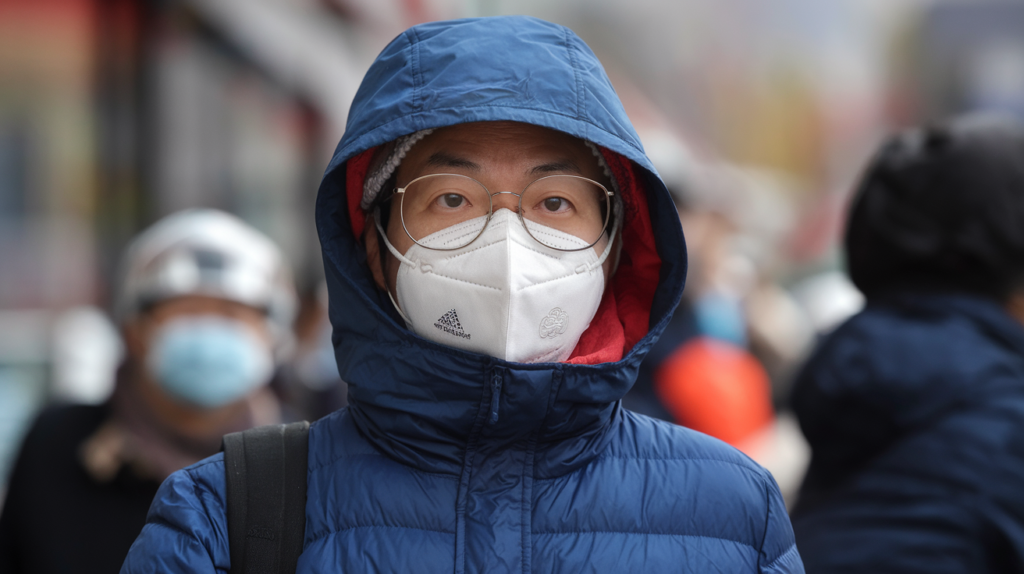An outbreak of Human Metapneumovirus (HMPV) in China has sparked concern worldwide. Countries, including India, are closely monitoring the virus and how it spreads. But should we be worried? How does HMPV compare to the COVID-19 virus? What are the symptoms, and what have experts shared so far? Is there a vaccine available for HMPV? Here’s everything you need to know.
Human Metapneumovirus: What Is It?
Human metapneumovirus (HMPV) is a frequent respiratory virus that leads to infections in both the upper and lower respiratory tracts, similar to a cold. This virus typically appears in the winter and early spring, making it a seasonal illness, much like Respiratory Syncytial Virus (RSV) and the flu.
Is HMPV Recently Identified?
HMPV is not a new virus; it was first identified in 2001, according to the US Centers for Disease Control and Prevention (CDC). However, some serological evidence indicates that HMPV may have been circulating since at least 1958, as noted by experts. This virus belongs to the Pneumoviridae family, which also includes Respiratory Syncytial Virus (RSV).
How Similar Is HMPV to COVID-19?
Yes, COVID-19, commonly referred to as coronavirus disease, is an infectious illness that results from the SARS-CoV-2 virus. The HMPV virus and the SARS-CoV-2 virus share some similarities:
1. Both viruses lead to respiratory illnesses that can affect people of all ages. However, young children, older adults, and individuals with weakened immune systems are particularly vulnerable.
2. The symptoms of HMPV closely resemble those of COVID-19. Common symptoms of HMPV include cough, fever, nasal congestion, and shortness of breath, which are also experienced by individuals infected with the COVID-19 virus.
3. Both viruses are primarily transmitted from an infected person to others through respiratory secretions released during coughing and sneezing, as well as through close personal contact. They can also spread by touching surfaces or objects contaminated with the viruses and then touching the mouth, nose, or eyes.
4. According to Science Direct, COVID-19 seems to be sensitive to temperature, which contributes to its seasonal nature. Similarly, the US CDC reports that HMPV also has specific seasons when it circulates. While HMPV can be found year-round, infections usually reach their highest levels in the United States from late winter to early spring.

Is There a Vaccine to Prevent HMPV?
At this time, there is no vaccine for HMPV, and doctors do not recommend antiviral treatments for it. However, individuals can take measures to help stop the spread of HMPV and other respiratory viruses by following these guidelines:
1. Make sure to wash your hands often with soap and water for at least 20 seconds. For more tips, check out the CDC’s “Clean Hands Save Lives!” guidelines.
2. Refrain from touching your eyes, nose, or mouth with hands that haven’t been washed.
3. Stay away from close contact with individuals who are unwell.
4. People with cold-like symptoms should cover their mouth and nose when they cough or sneeze.
5. Try not to share cups and eating utensils with others.
HMPV Outbreak: Should India Be Concerned?
In light of the HMPV outbreak in China, Dr. Atul Goel, Director-General of Health Services, reassured the public that there is no need to panic about the current situation. He encouraged everyone to follow general precautions to stay safe.
He stated, “We have reviewed the data on respiratory outbreaks in the country, and there is no significant increase in the data for 2024.” He also noted that respiratory infections tend to rise during the winter, and “our hospitals are fully equipped with the necessary supplies and beds to handle this.”
Dr. Goel told ANI, “I encourage the public to take some basic precautions. Those who have a cough or cold should avoid contact with others to prevent spreading the virus and take the usual medications for cold and fever. Other than that, there is no need to be alarmed about the current situation.”
Meanwhile, Dr. Arjun Dang, CEO of Dr. Dang’s Lab, cautioned that HMPV typically presents symptoms similar to other respiratory viruses. If the outbreak isn’t managed quickly, it could put significant pressure on the healthcare system. Dr. Dang emphasized that the Polymerase Chain Reaction (PCR) test is the most dependable way to diagnose HMPV.
India Takes Action: How Has China Responded?
The Ministry of Health stated that it is closely monitoring the situation in China through all available channels and has requested the World Health Organization (WHO) to provide timely updates on the matter.
In a press statement on Friday, Mao Ning, the spokesperson for China’s foreign ministry, mentioned that “respiratory infections usually peak in the winter months.”
The spokesperson also noted that “these illnesses seem to be less severe and are spreading on a smaller scale than they did last year.”I can assure you that the Chinese government is dedicated to ensuring the health and well-being of both its citizens and foreigners living in China. It is safe to travel in China.”










